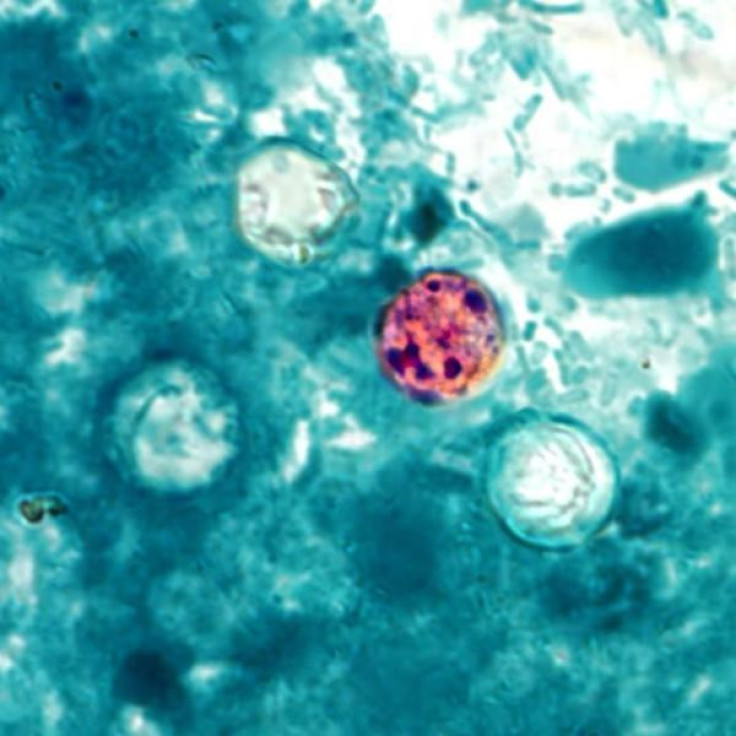Cyclospora Outbreak Spreads To Texas: 48 New Cases Of The Rare Intestinal Infection In One Week

Texas became the third state to report an unusual number of cases of cyclospora infections — a parasitic intestinal illness — this week, with the number of new diagnoses rising to 48 in just one week.
Cyclospora infection, or cyclosporiasis, is an intestinal illness caused by a microscopic parasite called Cyclospora cayetanensis. According to the Mayo Clinic, no one knows exactly how cyclospora infection is transmitted, but people who have the infection pass the parasite through their stool. It is believed that individuals get it by drinking contaminated water or eating contaminated food. The symptoms of cyclosporiasis include "explosive" diarrhea, loss of appetite, and stomach cramps. Symptoms usually manifest two to 11 days after exposure.
Earlier this week, Iowa and Nebraska announced that a combined 106 people in their states were infected with cyclospora. The Iowa Department of Public Health reported Monday that the state had 71 cases of cyclosporiasis. In Nebraska, 35 cases of the infection were reported on Friday.
In Texas, officials announced Thursday that the Texas Dept. of State Health Services is investigating nearly 50 new cases of the cyclospora infections in the Dallas/Fort Worth area. It is still unknown whether the outbreak in Texas has any connection to the outbreaks in Iowa and Nebraska. According to CNN, 44 cases of cyclosporiasis were reported in Texas in 2012. In 2011, about 14 cases were reported in the state. So, 48 newly reported cases of the infection in one week is highly unusual.
"DCHHS is continuing to investigate the possible food sources of contamination and who may have been exposed to them," Zachary Thompson, the department's director, said in a statement.
In Iowa, officials believe that the outbreak could be linked to fresh produce and transmitted through "raw vegetable product," according to Fox News. In the past, cyclospora outbreaks have been caused by contaminated raspberries, basil, and lettuce.
"There are still several vegetables we're investigating," said Patricia Quinlisk, of the Iowa Department of Public Health. "We're looking for something that could have exposed people in a multitude of settings, so we're doing a lot of food traceback. Whatever it was, it's not still on the market in Iowa."
Dr. Christopher Perkins, the Texas department's medical director, said that residents can decrease their risk of transmission by thoroughly rinsing fruits and vegetables several times.



























